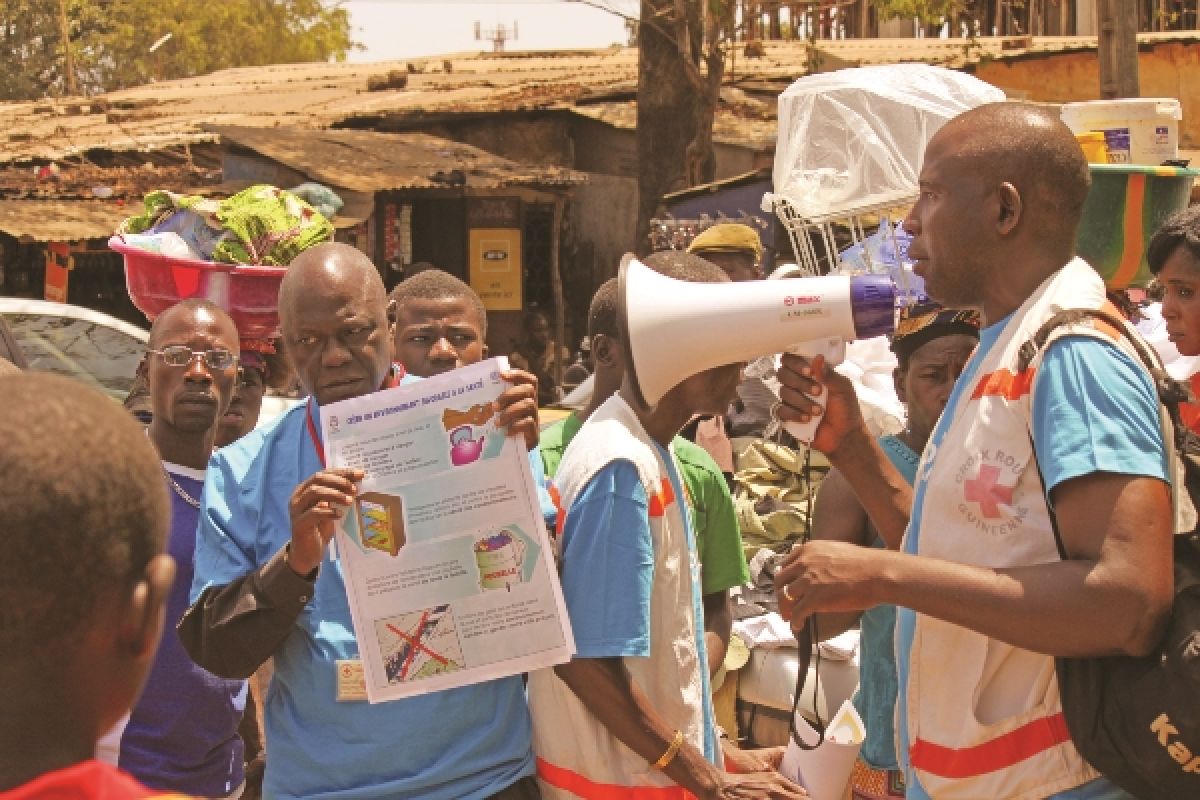Guinea, Liberia and Sierra Leone on edge over fears of Ebola return. By Jonathan Paye-Layleh in Monrovia.
It has been five years since the deadly Ebola virus was beaten out of the Mano River Union countries.
The countries, which have suffered countless wars and political unrests over the past three decades, still bear the psychological scars from the pandemic, which claimed more than 11,000 lives and caused widespread fear throughout Guinea, Liberia and Sierra Leone.
The return in February of the much-feared disease to Guinea, which is where the 2014-2016 outbreak started, has sent a wave of panic across the sisterly countries that have a lot in common, including poor healthcare delivery and poor infrastructure.
Re-emerging from the same Guinean Forest Region where the last pandemic began in 2014, the disease has already claimed five victims with hundreds more under surveillance within the first two weeks.
Swift international intervention included the dispatch of anti-Ebola vaccines.
The World Health Organization’s representative in Guinea, Alfred Kizerbo, emphasized the importance and efficacy of the vaccines in saving people of dying from Ebola.
And the global vaccine alliance, Gavi, revealed it had half a million doses ready to deploy if needed.
But this was not without resistance from people who, despite the devastation of 2014 – 2016, still doubt the existence of the disease.
Guinea’s minister of health, Remay Lamah, who hails from the Ebola-affected area, has lashed out at people who promote ‘fake’ ideas about the vaccine.
He told the BBC: ‘This vaccine is not a poison. This is why we are administering it in public so that you yourselves can see the reality.’
Despite Guinea’s porous borders, Sierra Leone and Liberia have not reported any case at the time of going to press.
Sierra Leone’s president, Julius Maada Bio, however, was not leaving anything to chance.
On hearing the Guinea re-emergence, he instructed his new health minister, Dr Austin Demby – who was in country with the US Center for Disease Control and Prevention during the last Ebola outbreak – to take immediate action and ensure the country’s emergency response system was increased to Level 2. This would ensure enhanced surveillance, active case finding and robust community engagement.
Liberia’s President George Weah reacted to the new Guinea outbreak by ordering health authorities ‘to heighten the country's epi-surveillance and preventative activities’.
Coincidentally, the 54-year-old footballer-turned-politician was in the region that borders Guinea, as part of his three-year anniversary tour of Liberia, when news of the resurgence broke.
A senatorial aspirant at the time of the 2014 Liberia outbreak, Weah had teamed up with the Ghanaian singing sensation, Sidney, to create an Ebola awareness song during the last outbreak.
Now president, he has instructed health officials to ‘immediately engage communities in towns and villages bordering Guinea and increase anti-Ebola measures.’
Amid the panic, Liberian health authorities reported one suspected case of Ebola in a woman with malaria-like symptoms who had been to the Guinean town of Nzerekore on February 12. The country’s minister of health, Wilhelmina Jallah, later confirmed that the woman had tested negative for the disease.
The outbreak of Ebola in Liberia in March 2014 exposed the weakness of the health sector of Africa’s oldest independent republic.
A lack of personal protective equipment (PPE) caused healthcare workers to succumb to the disease in that outbreak, and led to hospitals and clinics turning their back on potential Ebola patients out of fear.
The 2014-16 outbreak overwhelmed Liberia.
Burial teams were unable to cope with the number of dead, and a large Indian-owned crematorium in a township southeast of Monrovia had to be opened. Meanwhile, thousands of non-Ebola patients died of curable diseases for fear of being diagnosed with Ebola if they reported to hospital.
Since the defeat of Ebola, the Liberian government has not said what it intends to do with the ashes and remains of victims of the 2014-16 outbreak.
There are suggestions that those who had been buried hurriedly in shallow graves prior to the introduction of cremation could be exhumed and reburied in a more dignified way.
Before the February return of Ebola to the sub-region, people from the Mano River Union countries nervously monitored news from the Democratic Republic of Congo (DRC), which was combating its own Ebola outbreak.
The outbreak is the DRC’s 12th since Ebola was first discovered in 1976 in isolated villages on the banks of the river after which it is named.
The latest DRC outbreak comes less than three months after a separate outbreak in the western province of Equateur officially ended in November 2020.




